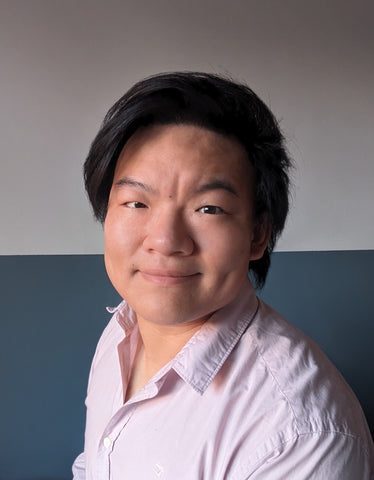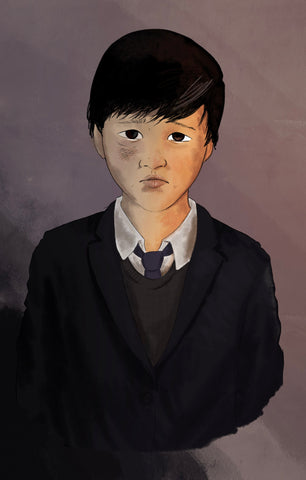As part of our Kickstarter campaign for Haunted Hallways, we invited some of the writers to chat about their stories and the genre in which they reside. Thanks to author Charlie Jiao for this great essay!
MAGIC SCHOOLS DESERVE TO BE DARK
By Charlie Jiao, Chinese adoptee and author of "The Housemaster's Cure for Homesick Boys"

When you are seven, Big School looms on the horizon with promises of freedom and adventure. Possibilities not yet impossible blur lines between reality and fiction. You've yet to know what the world can't do for you. To a child waiting for a summons, of course stories of schools and magic take the cake.
Some of my earliest reads were the Chrestomanci series. Charmed Life sees Cat Chant orphaned and sent with his sister to study—and live—in the castle of a great enchanter. The thing I love about Diana Wynne Jones is that dry truthfulness. Of the vain Chresomanci, who is fundamentally good. Plain little Cat, unremarkable to a fault, with stakes that are personal. Selfish, even. Wynne Jones’ fantastical academia was real, and she’d mastered the magic formula:
To truly get into the action, you need mystery and enlightenment. You need dead parents and things that want you dead.
Rather dark, when written out like that.
I think I was fairly unique in my dreams. When children in books lose their parents, they become princes. I, the adopted child, thought maybe that could be me. (I love my adoptive parents, but in the event my fairy birth mother comes to claim me, I’d have to go.)
I've probably aged out of the chance to manifest magical powers and be whisked away to a faraway land to harness them. Now, I prefer to dream not of a life I could lead, but of finding myself in the worlds I read. In sci-fi novels, that obsession with exploration and investigation. In crime thrillers, the notion that hard-up investigators are just guys doing their jobs. And in the gothics, the acceptance that there are things that want you dead.
Sometimes there are. Even real life has its winners and its losers. In dark academia, in gothic horror, it's much easier to accept that things go bad even if you are good. Sometimes there just is no happy ending.
I think one of the reasons I like dark academia is that beneath its pretentious exterior, it touches on important topics through the universal lens of school. The genre has been criticized for glorifying unhealthy lifestyles of self-imposed stress and sleeplessness in pursuit of academic excellence. It's an exaggerated reality of the way education can go wrong. Children spend a quarter of their time in schools being told they must succeed. I find dark academia to be not a romantic aspiration, but a caution against the isolation, ego, and exclusivity that this constant pressure for excellence breeds.
Profoundly untouched in classic school novels is the discussion of the injustice of the foundations they are built upon. The good fight is always against the other.
Children's fiction can’t question this, because it's not until years later that you can step back. Wait. Why did the adults never help me? And sometimes, the adults do their best, in floundering actions of teachers ill-prepared. But sometimes, and especially in fiction, they don't. And it's not until you are older that you can ask why. I could never let myself down like that.
Perhaps it goes deeper than childhood nemeses and personal grievance. Perhaps it is an institutional disdain for those who are not supposed to be granted success.
Enter: Babel by R.F. Kuang. The necessity of violence, an intellectual critique of how we wield knowledge. Away from his homeland and thrown into an England that intrigues as much as it exploits, Robin Swift pursues knowledge relentlessly. When he finally understands the nature of the beast that raised him, he’s earned the privileged ability to fight it.
(I know a little about destiny viciously drawing its path so far from home. How lucky I am, to be here. How selfish, to criticize this country.)
R.F. Kuang describes Babel as a letter to Oxford. She wraps a neat little magic system into the flaws of its foundation. When fantasy lets us take an experimental paintbrush to a world where anything is possible, what is real weighs on every stroke.
Dark academia is a gothic horror everyone knows. Well then, its struggles should be known, too. The institution is flawed. Sing it to the heavens, if you dare…
"The Housemaster's Cure for Homesick Boys" is one of the stories featured in Haunted Hallways.

In this short story, Billy Huang is eleven years old and pathetically homesick. But the housemaster dismisses his miserable sniffles, even when Billy is convinced his room is haunted…
